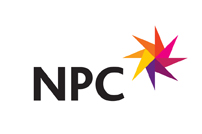Public support for charities has increased during the coronavirus pandemic, but a drop in people’s income is set to affect regular donations, new research has revealed.
A poll conducted by nfpSynergy between Friday 22 March and Tuesday 24 March revealed 66% of the general public are willing to consider donating to charities amid the pandemic, while 8% have already done so.
It further revealed over half (51%) would consider volunteering, while 47% would consider fundraising for a charity working directly on a response to coronavirus.
Despite this, the poll revealed 66% of respondents were unable to name a single charity working directly on responding to the outbreak.
Overall, the British Red Cross was the most mentioned charity, chosen by 7% of respondents, followed by Age UK (5%) and Oxfam (4%).
Meanwhile, although the public’s attitude towards charities during the pandemic was generally strong, 25% said they expect to decrease the amount they give to charity, compared to 18% expecting to increase.
This was primarily cited as a result of cuts to income, with 49% claiming they expect their income to drop over the next few months.
Results found ‘significantly high’ numbers of people had already been involved in helping out in their community without the involvement of a charity (17%), while a further 60% would consider doing so.
Respondents said they want to see charities demonstrating ‘concrete action in the here and now’ by providing day to day support for at-risk people (64%), followed by funding or carrying out medical research (41%) and providing volunteers at hospitals (40%).
Further down the list were providing advice and information (27%) or campaigning on behalf of vulnerable beneficiaries (13%). Over half (57%) of the public believe that charities should continue to engage in fundraising with the public.
"These results show the importance for UK charities of continuing to communicate with the public throughout the crisis," nfpSynergy director, Ireland, Cian Murphy said.
"If you work responding to the pandemic, or if your beneficiaries are affected, let people know. If not, remind them why you are still relevant and your work is still vital. There is still an appetite for fundraising among the public, so don't be afraid to communicate your need for donations now more than ever," he added.
Latest News
-
King’s New Year’s Honours list pays tribute to charity leaders
-
Charity Leaders’ 2026 To Do List
-
Toy library charity to fight on despite closure fears
-
2025: A year in the news
-
Funder launches initiative to improve charity board diversity
-
National Trust's former legal counsel takes senior role at charity regulator
Charity Times video Q&A: In conversation with Hilda Hayo, CEO of Dementia UK
Charity Times editor, Lauren Weymouth, is joined by Dementia UK CEO, Hilda Hayo to discuss why the charity receives such high workplace satisfaction results, what a positive working culture looks like and the importance of lived experience among staff. The pair talk about challenges facing the charity, the impact felt by the pandemic and how it's striving to overcome obstacles and continue to be a highly impactful organisation for anybody affected by dementia.
Charity Times Awards 2023
Mitigating risk and reducing claims

The cost-of-living crisis is impacting charities in a number of ways, including the risks they take. Endsleigh Insurance’s* senior risk management consultant Scott Crichton joins Charity Times to discuss the ramifications of prioritising certain types of risk over others, the financial implications risk can have if not managed properly, and tips for charities to help manage those risks.
* Coming soon… Howden, the new name for Endsleigh.
* Coming soon… Howden, the new name for Endsleigh.
Better Society

© 2021 Perspective Publishing Privacy & Cookies










Recent Stories